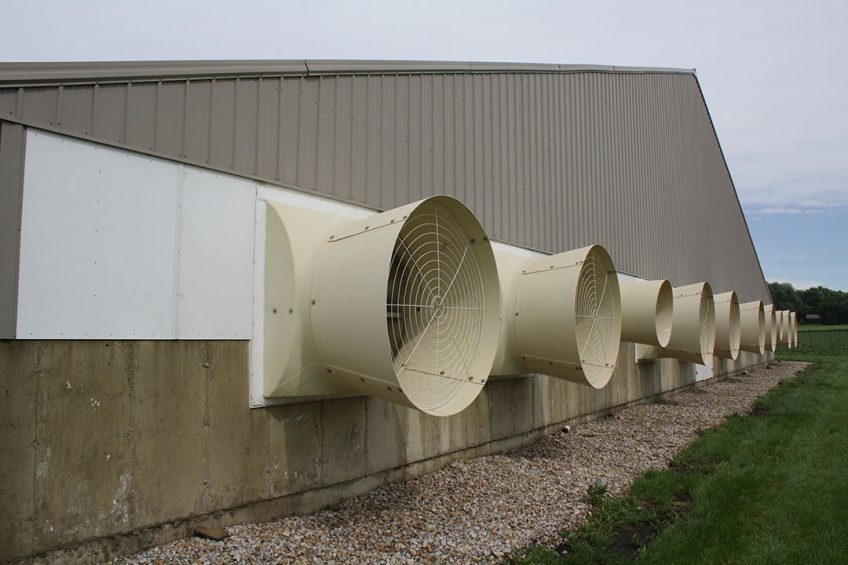Covid-19 crisis hits US pig production hard

Pork producers in the US and Canada face immediate problems due to Covid-19 because they have nowhere to ship their finishers. Some have reverted to culling or aborting as their pig houses would otherwise get too full.
Several pork plants in the United States had to temporarily close down as workers had become ill due to Covid-19. The meatpackers included Smithfield Foods, Cargill, JBS and Tyson Foods. About 20 slaughterhouses and processing plants closed in North America since April.
Aborting sows
The effects in the US pig industry can be dearly felt. News agency Reuters reported about an Iowa farmer who decided to abort his sows, as he would not have room for the animals because the fully-grown pigs could not leave the farm.
Another Iowa farmer euthanised the smallest 5% of new born pigs (125 piglets/week) and will continue to do so until disruptions ease. The bodies are composted and will become fertiliser. In addition, sows are also being culled to reduce numbers.
The situation has urged president Trump to sign an executive order to compel slaughterhouses to remain open. Bloomberg reported Trump to say: “Such closures threaten the continued functioning of the national meat and poultry chain, undermining critical infrastructure during the national emergency.”
Pork has been hit especially hard, with daily production cut by about a third.

Why is the US pig industry hit harder than its European counterpart?
Read the quarterly pig market analysis by Dr John Strak
Political responses to the pork crisis
Iowa governor Kim Reynolds, along with US senators, sent a letter to the US administration pleading for financial help and assistance with culling animals and properly disposing of their carcasses. Some pigs have to be trucked to other plants against substantially higher costs, but it is unclear who is paying for those costs.
The US Department of Agriculture (USDA) said it is establishing a National Incident Coordination Center to help farmers find markets for their livestock, or euthanise and dispose of animals if necessary.
Losses in the billions
The US National Pork Producers Council (NPPC) quoted Dr Steve Meyer, of Kerns & Associates, and Dr Dermot Hayes of Iowa State University, who estimated that “Hog farmers nationwide will lose an estimated $ 5 billion, or $ 37 per head, for the rest of the year due to pandemic disruptions.”
$ 19 aid package for US pig farmers
Recently, the US government announced a $19 billion Covid-19 aid package for farmers, of which about $ 1.6 billion is reserved for the hog industry. It remains to be seen if that amount would be sufficient.
NPPC president Howard Roth stated: “We fear the lifeline so desperately needed will fall short of what is truly needed. While the direct payments to hog farmers will compendate losses for some farmers, they are not sufficient to sustain the varied market participants, including those who own hogs as well as thousands of contract growers who care for pigs. All of these participants have made sizable investments in a US pork production system that is the envy of the world. Many generational family farms will go bankrupt without immediate financial aid.”
ISU: Why to slow down pig growth
As a result of the crisis in US pig production, several researchers at Iowa State University released a document with the title ‘Economic Considerations for Reducing Growth Rates and Feed Intake for Finishing Pigs’. In other words: how and why to slow down the growth of the finishers.
In addition, the National Pork Board has been holding webinars providing animal welfare tools during euthanasia and emergency depopulation.
Meanwhile, the issue of euthanising also caught the attention of animal welfarist organisation World Animal Protection. They sent a letter to the American Veterinary Medical Association (AVMA) to point to 2 methods which the organisation considers inhumane.

Covid-19 Up-date
What impact is the pandemic having on the global pig sector and how are they dealing with it.
Effects on pig business in Canada
Canada feels the effects of Covid-19 as well. The value of Canadian newborn piglets has fallen to 0 because of US processing plant disruptions. Reuters quoted Rick Bergmann, chair of the Canadian Pork Council, describing how a hog farm on Prince Edward Island euthanised 122 kg pigs that were ready for slaughter, because there was no place to process them, Bergmann said. The animals were dumped in a landfill.
Emergency funds
The CPC called on the government to pay the farmers emergency funds of CAN$ 20 (US$ 14) per pig to help them stay in the business. Producers across the country say they now expect to lose CAN$ 30-50/hog (US$ 21-36) for every one they sell in 2020, costing farmers across the country $ 675 million dollars. Bergmann said, “Without it, family farms will be lost. In turn, we will continue to see disruption in the food supply chain, and increased food insecurity as supplies tighten and food becomes even more expensive.”
With additional reporting by Chris McCullough











